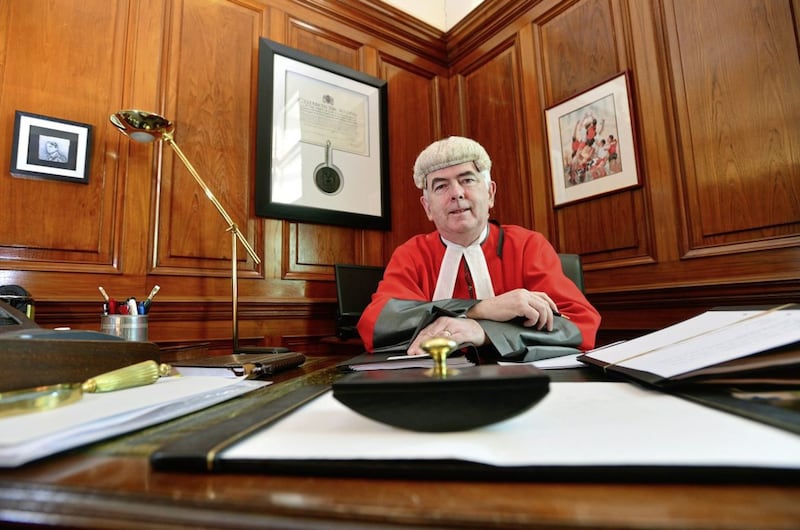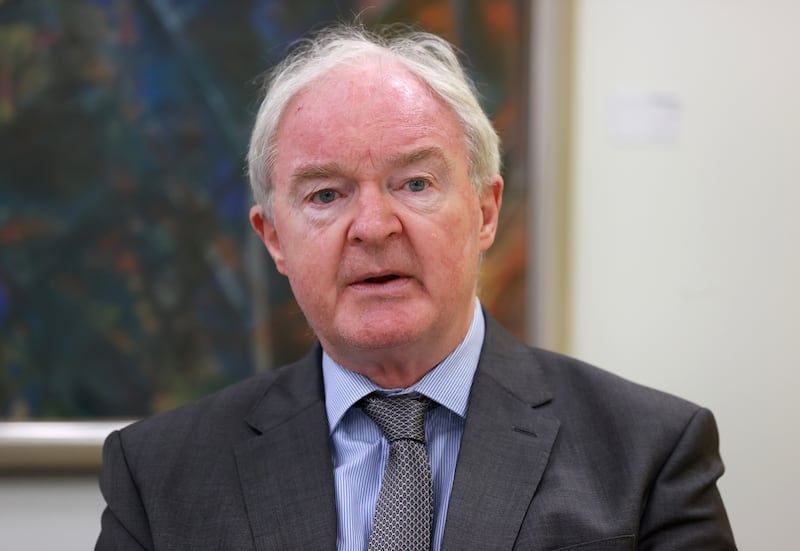Legislation on the legacy of the conflict was “holed below the water line” following the High Court ruling the amnesty provisions were incompatible with key human rights, according to a leading expert on international law.
The UK Government was cornered by its insistence amnesty was at the core of the Legacy Act, said Professor Kieran McEvoy, of the Queen’s University School of Law,
“It really has been hoisted by its own petard as they kept saying the amnesty element was the core, the key piece,” said Professor McEvoy.
“You take out that core of the architecture of the legislation, the entire act is holed below the water line. Nobody is going to get an amnesty.”
Mr McEvoy argued that this was the whole reason for the legislation, in short “amnesty for British soldiers”.
Justice Adrian Colton, in his ruling on Wednesday, arguably strayed beyond the strictly legal when he commented there was “no evidence that the granting of immunity…will in any way contribute to reconciliation in Northern Ireland.”

Professor McEvoy suggested this remark was maybe prompted because the reconciliation argument was “an insult to the intelligence of the court”.
There will be appeals, with the government arguing against the amnesty ruling but the families potentially counter claiming in connection with the ruling the Independent Commission for Reconciliation and Information Recovery (ICRIR) can continue. The court also did not rule shutting down inquests was unlawful.
Appeals will be taken all the way to the Supreme Court, but they are unlikely to be heard and not determined prior to the UK General Election later this year or at latest early next, Mr McEvoy said.
It is possible the London government will just “put the head down” and ignore the court ruling as parliament remains sovereign, but it has rarely done so.
“That’s when the legal hits politics,” said Mr McEvoy.
Sir Declan Morgan, the ICRIR head and former lord chief justice, has made clear he will not operate in any way with legislation that may be unlawful. He will not allow the commission to offer amnesty and if attempts are made to force him, he will likely resign, said Mr McEvoy.

Professor Duncan Morrow, of the Ulster University politics department, said the prevailing view among the legal community ahead of the ruling being handed down was that the immunity provisions were not compliant with articles two or three. There is an anticipation this element of the ruling will be upheld by the higher courts, he added.
While Mr Justice Colton found no reason to rule the wider system established under the act could not investigate killings during the conflict, amnesty was the “carrot” to encourage people to come forward, said Professor Morrow.
“The problem is, who is going to come forward? If there is no immunity for the truth, it will affect the number coming forward.”

The Irish Government has announced plans to take a separate case in Europe against the Legacy Act and again opposition to immunity will be one of the key arguments being made.
But should the immunity ruling be upheld in the higher UK courts, or the appeal process continues after a Labour government comes into power, Dublin’s case may be “null and void”, said Mr Morrow.







